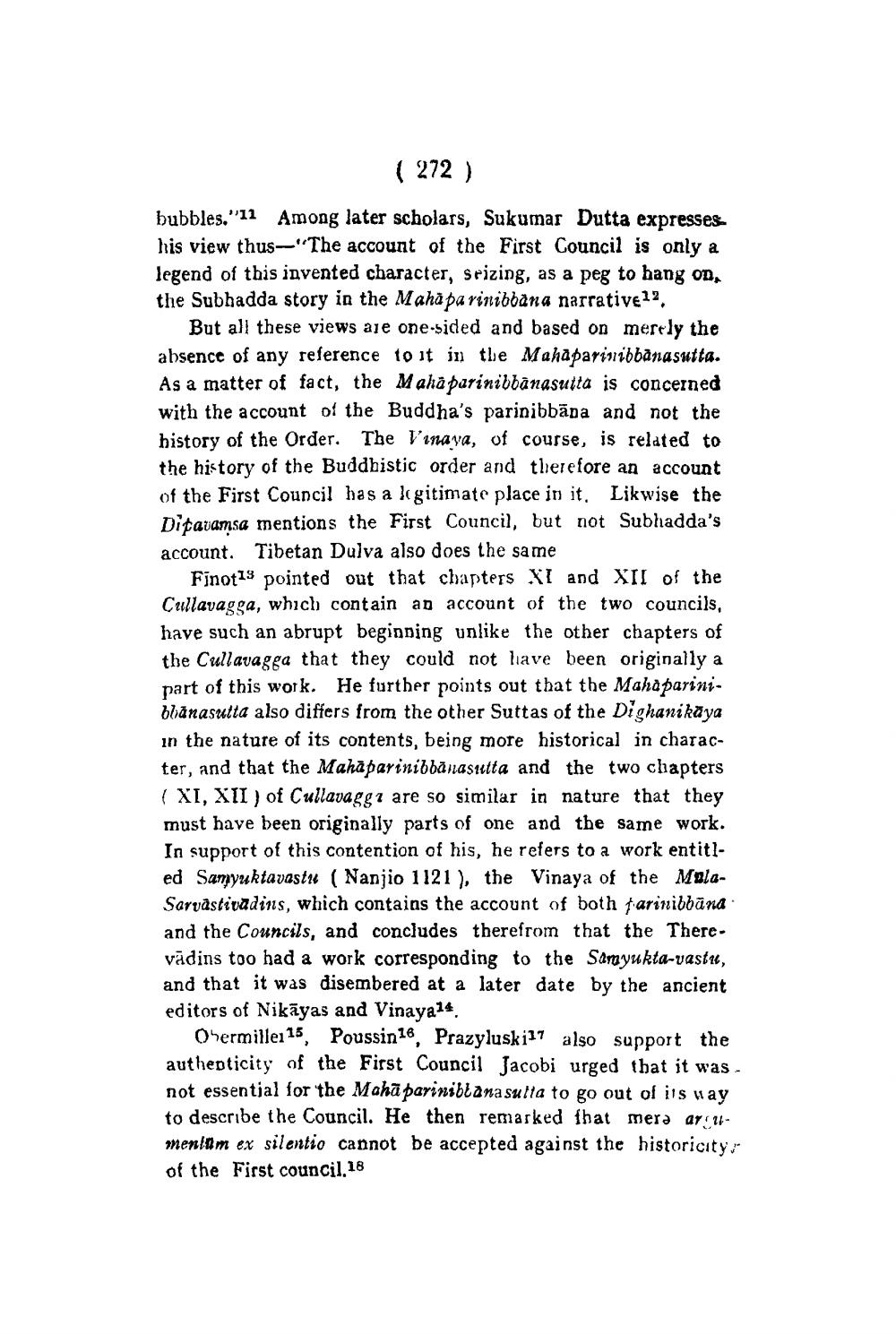________________
( 272 )
bubbles."11 Among later scholars, Sukumar Dutta expresses his view thus--"The account of the First Council is only a legend of this invented character, seizing, as a peg to hang on the Subhadda story in the Maha pa rinibbana narratively,
But all these views are one-sided and based on merely the absence of any reference to it in the Mahaparinibbanasutta. As a matter of fact, the Mahä parinibbanasuita is concerned with the account of the Buddha's parinibbāna and not the history of the Order. The l'inava, of course, is related to the history of the Buddhistic order and therefore an account of the First Council has a legitimate place in it. Likwise the Ditavamsa mentions the First Council, but not Subhadda's account. Tibetan Dulva also does the same
Finot19 pointed out that chapters XI and XII of the Cullavagga, which contain an account of the two councils, have such an abrupt beginning unlike the other chapters of the Cullavagga that they could not have been originally a part of this work. He further points out that the Mahapariniblianasutta also differs from the other Suttas of the Dighanikaya in the nature of its contents, being more historical in character, and that the Mahaparinibbānasutta and the two chapters ( XI, XII) of Cullavaggi are so similar in nature that they must have been originally parts of one and the same work. In support of this contention of his, he refers to a work entitled Samyuktavastu ( Nanjio 1121 ), the Vinaya of the MolaSarvâstivadins, which contains the account of both farinibbūna and the Councils, and concludes therefrom that the Therevādins too had a work corresponding to the Samyukta-vastu, and that it was disembered at a later date by the ancient editors of Nikāyas and Vinaya14
Ohermille115, Poussin 26, Prazyluski17 also support the authepticity of the First Council Jacobi urged that it was. not essential for the Maha parinibłanasulta to go out of its way to describe the Council. He then remarked that mera ar 2meniam ex silentio cannot be accepted against the historicity." of the First council.18




